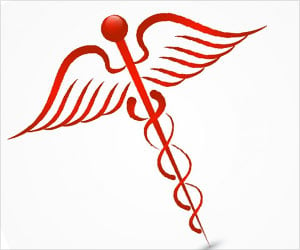Has the Indian budget fulfilled expectations of the health sector? Find out more!
The Union Budget of India for the Financial Year 2009-10 was presented today in the Lok Sabha by Finance Minister Pranab Mukherjee.
India's health budget has escalated from Rs.4,000 Crores to Rs.21,113.33 Crores ($4.35 billion) with the Finance Minister laying special emphasis on rural healthcare and health for all. The budget allocation for the National Rural Health Mission (NRHM) increased by Rs.2,057 Crores.The NRHM was launched in 2005 by the UPA government with the aim of providing quality healthcare for people living in remote areas.
The government is setting up six All India Institute of Medical Sciences (AIIMS)- like institutions across the country and hopes to upgrade thirteen of the existing medical colleges. Rs.1,447.92 Crores has been earmarked for this project. The project also hopes to correct the regional imbalance in the healthcare services by setting up AIIMS prototypes across smaller towns like Patna (Bihar), Raipur (Chhattisgarh), Bhopal (Madhya Pradesh), Bhubaneswar (Orissa), Jodhpur (Rajasthan) and Rishikesh (Uttarakhand).
The recent budget has also set aside Rs.10 Crores for the National Programme for Prevention and Control of Deafness (NPPCD). This program aims to prevent avoidable hearing loss and make possible the early identification, diagnosis and treatment of ear-associated problems that cause deafness.
The budget also allocates Rs.100 Crores for starting medical, non-medical and nursing courses in institutions under the purview of the health ministry with a view to reserve 27 percent for the Other Backward Classes (OBC).
The department of Ayurveda, Yoga and Naturopathy, Unani, Siddha and Homoeopathy (AYUSH) under the health ministry has been allocated Rs.734 Crores with the aim of developing and promoting the Indian systems of medicines.
Reacting to the Budget proposals, well -known heart surgeon K K Aggarwal said that the budget had little to offer the health sector.
Although the health sector has now been exempted from service tax, transport has been assigned service tax. This automatically includes the ambulances which come under the purview of transport.
‘This year, they have imposed a tax on ambulances. Next year, it could be the health professionals,’ Dr Aggarwal opined.
Another disappointing feature was that no novel health insurance scheme has been announced in the budget.
'We were expecting the Government to announce new hospitals and dispensaries besides funding for buying new and technologically advanced medical equipment. But, nothing has been announced on this in the Budget'. the heart specialist complains.
The Union budget has, by and large, been welcomed by the pharma industry. While the industry is happy with continuation of the excise duty at 4 percent - a move which has been welcomed. This means that the consumers will be able to get the medicines at the same cost. Some of the other features include–
• Weighted deduction of 150 per cent on expenditure incurred on in-house R&D in manufacturing businesses
• Customs duty reduced from 10 to 5 percent on life saving drugs
• Countervailing duty on the influenza vaccine and nine specified life saving drugs including those used for treating breast cancer, hepatitis-B, rheumatic arthritis
• Total exemption of excise duty for these drugs.
Some pharma giants have described the budget as ‘growth-oriented straight forward practical solution to industrial growth’. But the industry seems to be anticipating more .
Source-Medindia
Dr. REEJA THARU/M










